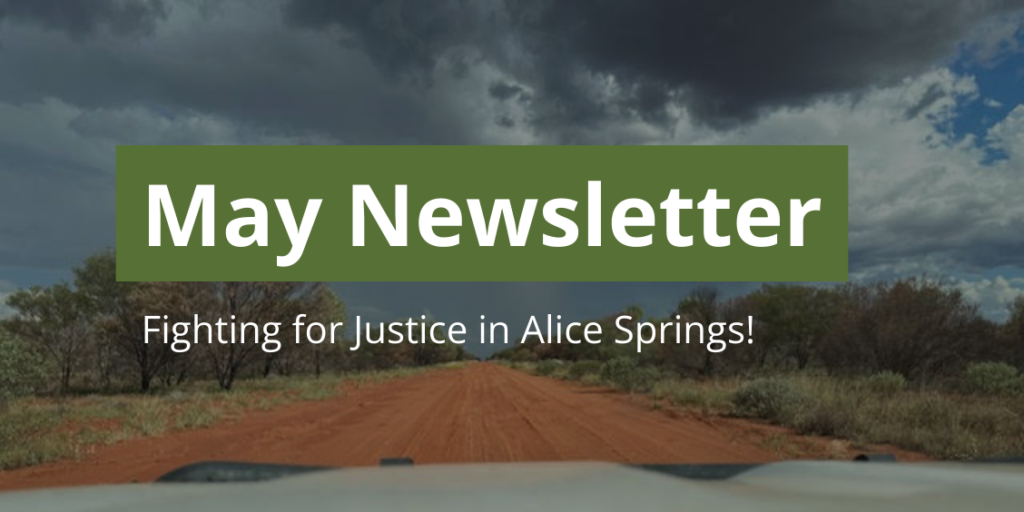In the May edition of our monthly newsletter, we are excited to share the experiences of our lawyers from their time fighting for justice in Alice Springs.
If you would like to subscribe to our newsletter, please sign-up here.
Our dedicated team provided pro bono legal assistance to the North Australian Aboriginal Justice Agency (NAAJA) in Alice Springs. This initiative was a response to an urgent need for legal representation for Aboriginal people in the town, where recruitment challenges had left many people facing court without proper legal support.
Our lawyers faced the stark contrasts of this unique region: the majestic landscapes, the complex legal environment, and the vibrant, resilient culture of Central Australia.
Despite the daunting challenges, including systemic issues within the justice system and the heart-wrenching realities faced by Aboriginal clients, our team emerged more resilient and motivated.
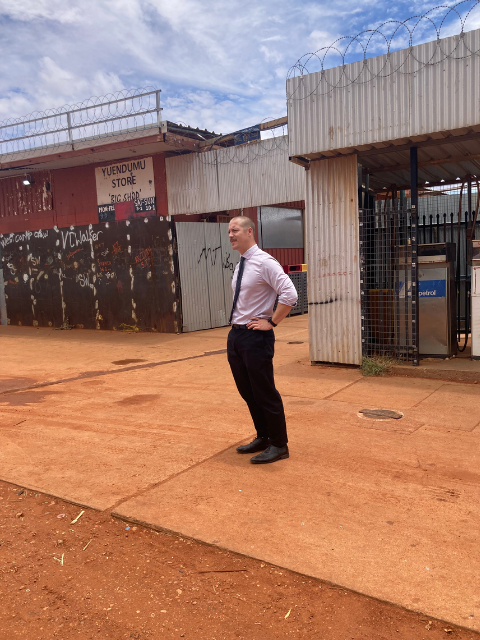
Here’s what you’ll find in this newsletter:
- We present their unfiltered experiences, highlighting the critical need for systemic improvements and the profound impact of their work.
- Our lawyers’ reflections, which underscore the importance of advocacy and the transformative power of service.
- Powerful quotes from our team about the lessons learned from our beautiful, challenging journey in Alice Springs.
Our Journey to the Red Centre
For two months from February 2024, our firm provided pro-bono support to the North Australian Aboriginal Justice Agency (NAAJA) in Alice Springs. At the time NAAJA was experiencing a shortage of legal professionals and it had reached a point where several Aboriginal people were facing court or prison time without proper legal representation.
Our two most senior lawyers, Peter O’Brien and Stewart O’Connell, both have a decades-long history of working with and for Aboriginal people in the Northern Territory, and with NAAJA. Having this experience, they knew they had to help.
Our lawyers went up in pairs for two weeks at a time, many of them never having been to the Northern Territory before. Their experiences were reflective of the stark contrasts between the majestic country, troubling legal jurisdiction, and dynamic culture, that make Central Australia such a unique and challenging place.
We acknowledge access to, and the administration of, justice in a jurisdiction like the Northern Territory is complex and multi-faceted, involving a number of institutions (legal services, police and the courts alike) that are under immense pressure. That said, the experiences of those coming from outside should not be ignored and attention urgently needs to be given to improving systemic issues.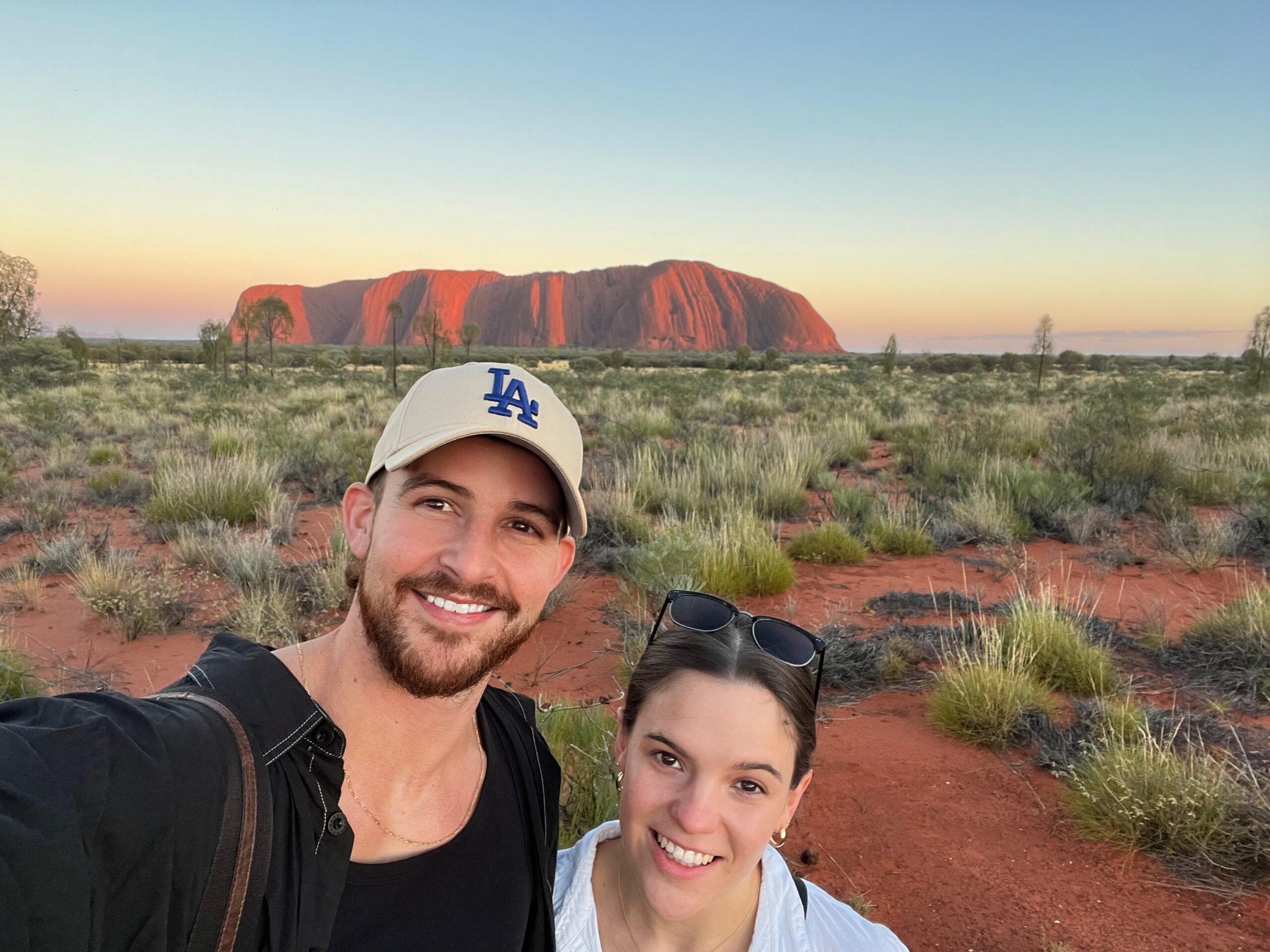
Quotes from our Lawyers
“The Northern Territory is a brutal, unforgiving jurisdiction. I found it particularly jarring being in courtrooms of all white solicitors, with white judges, moving through the motions of adjournments, pleas and bail applications for Aboriginal clients who generally had limited understanding of what was happening, and were often being denied bail or sentenced to custody. I was grateful for the opportunity to help where I could, but definitely felt a sense of hopelessness, particularly at times where clients didn’t show up, we had no contact details, and the court methodically issued warrants for their arrest. (I) would describe it as being a cog in the machine, assisting the justice system process Aboriginal people”.
“I found the Northern Territory to be a depressing and callous jurisdiction, i.e., a man sitting in the court cells for four days without seeing a lawyer; every assault being charged as an “aggravated” offence; a teenager affected by alcohol foetal syndrome not having access to the proper care, etc”.
Our stories – Fighting for Justice in Alice Springs!
“It was challenging to step into and work when systems were not clear, paperwork was difficult to obtain and there was no cohesion between the court, police, NAAJA and Legal Aid. This made it particularly difficult to process the actual volume of work that existed and sadly saw people in custody not appear at court and, in some instances, forgotten about”.
“The most challenging memory is seeing persons overlooked and not presented before the Court for several days. The courts, police and lawyers had no system that would identify this and sadly I saw this happen more than once within a very short period of time”.
“I have never seen a population more visibly oppressed and over policed. The Alice Spring Local Court had deplorable administration and the work that NAAJA does is so necessary to fighting against the ceaseless tide of oppression Indigenous people in the NT experience”.
The legal issues facing aboriginal clients in the Northern Territory
“The diversion and adjournment of matters when they could not be reached was really concerning, especially when they would often be adjourned some weeks ahead which raised serious issues around access to justice, timeliness of justice and equitable outcomes to be reached for the Indigenous community even when lawyers are representing them”.
Despite the obvious challenges of working in this jurisdiction, all of our staff gained a lot from it and have come back to us as more resilient and motivated lawyers.
“The solicitors at NAAJA (including volunteer solicitors from around Australia) were awesome and taught me a lot”.
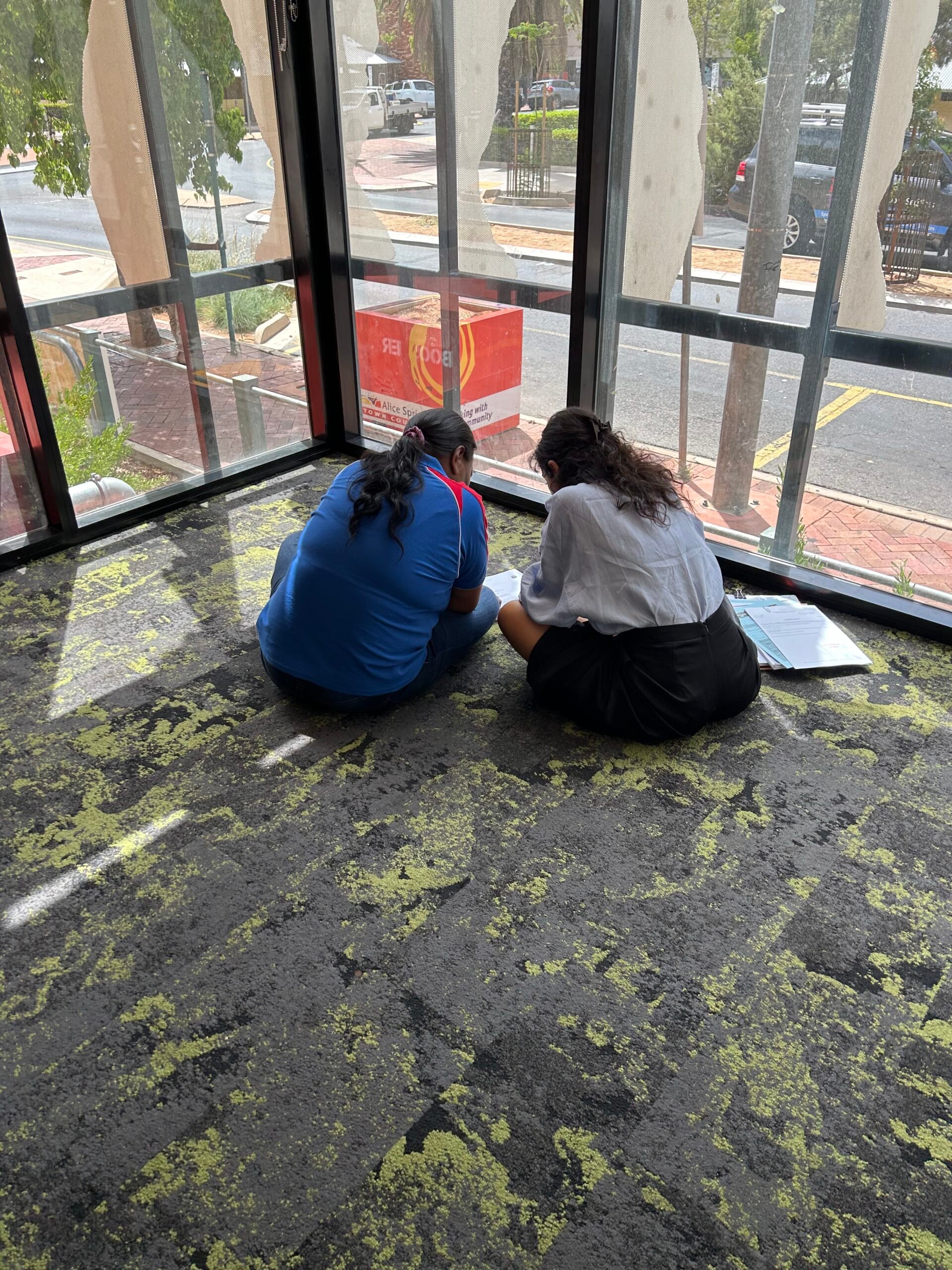
“In the short time I was there, I gained a much greater appreciation for the resilience and continuing culture of Aboriginal people. They faced the justice system, which they knew was unforgiving, with a great deal of strength. Clients were consistently honest, forthright, and accepting of responsibility for what had happened. I was moved by how many family members were at court, often travelling hours and waiting at court all day just to support someone”.
“I got more experience in the Northern Territory in two weeks than I have since I was admitted. I was on my feet and working independently under time pressure each day due to the nature and volume of work”.
Fighting for Justice in Alice Springs!
“On my return to the NSW jurisdiction, it has made me very alive to the fact just how tenaciously you must fight for Aboriginal clients. You can read about the Bugmy principles, etc, however until you have to argue those principles in the Alice Springs Local Court you never really understand just how important they are”.
“It was a tough gig but a beautiful place and beautiful people despite the challenges facing the community. The clients were generally lovely and welcoming, especially at the remote community of Kintore, which was a great experience, including the eating of kangaroo tail cooked fresh in the earth”.
“The experience reinforced many of the driving reasons I moved to become a criminal defence lawyer and the attraction of this work. It is patently important work and particularly in a context where the laws, policy and policing seem to be oppressive. I also really enjoyed the heat, the access to nature and the ability to see a very beautiful part of Australia”.
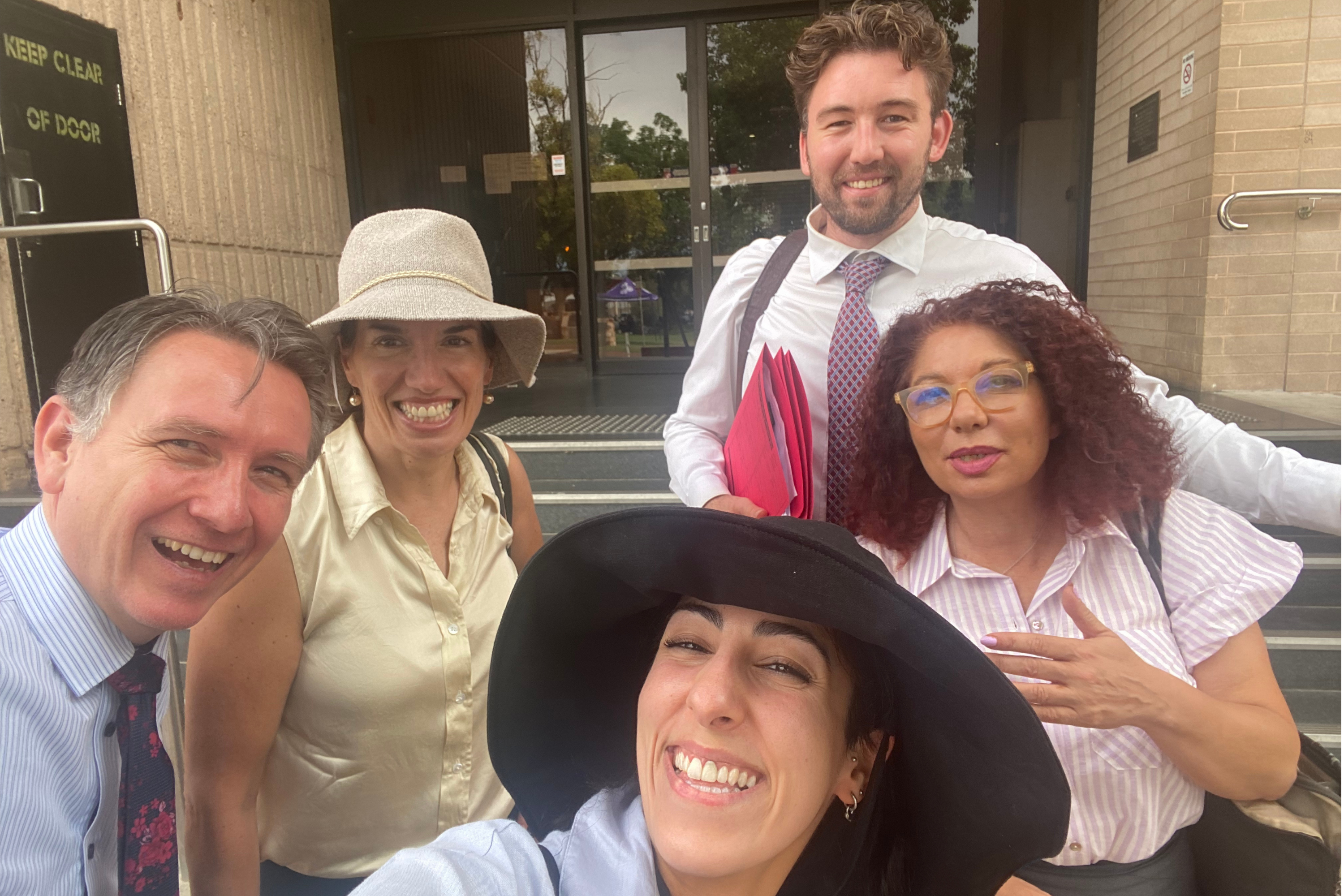
“It was swiftly apparent to me that the Indigenous clients were in such dire need of legal assistance and support, and grateful for your representation as a result. I enjoyed working alongside them to get the best result possible, and also liaising with the Indigenous interpreters who are incredibly gifted and astute in translating and converting difficult legal concepts in their native tongue and with their shared communal understanding”.
“I have learned to withstand the pressures of a house (the Alice Springs Local Court) on fire whilst still trying to protect and represent those who need it most (the Indigenous community of Alice Springs). Notwithstanding the procedural nightmares or judicial pressures, I felt I was one barrier that protected my clients against the full weight of the justice system, that can at times lack transparency, simplicity, and fairness”.

Nicole Byrne
Content Creator | Media Coordinator
O'Brien Criminal & Civil Solicitors
- Nicole Byrne
- Nicole Byrne
- Nicole Byrne


